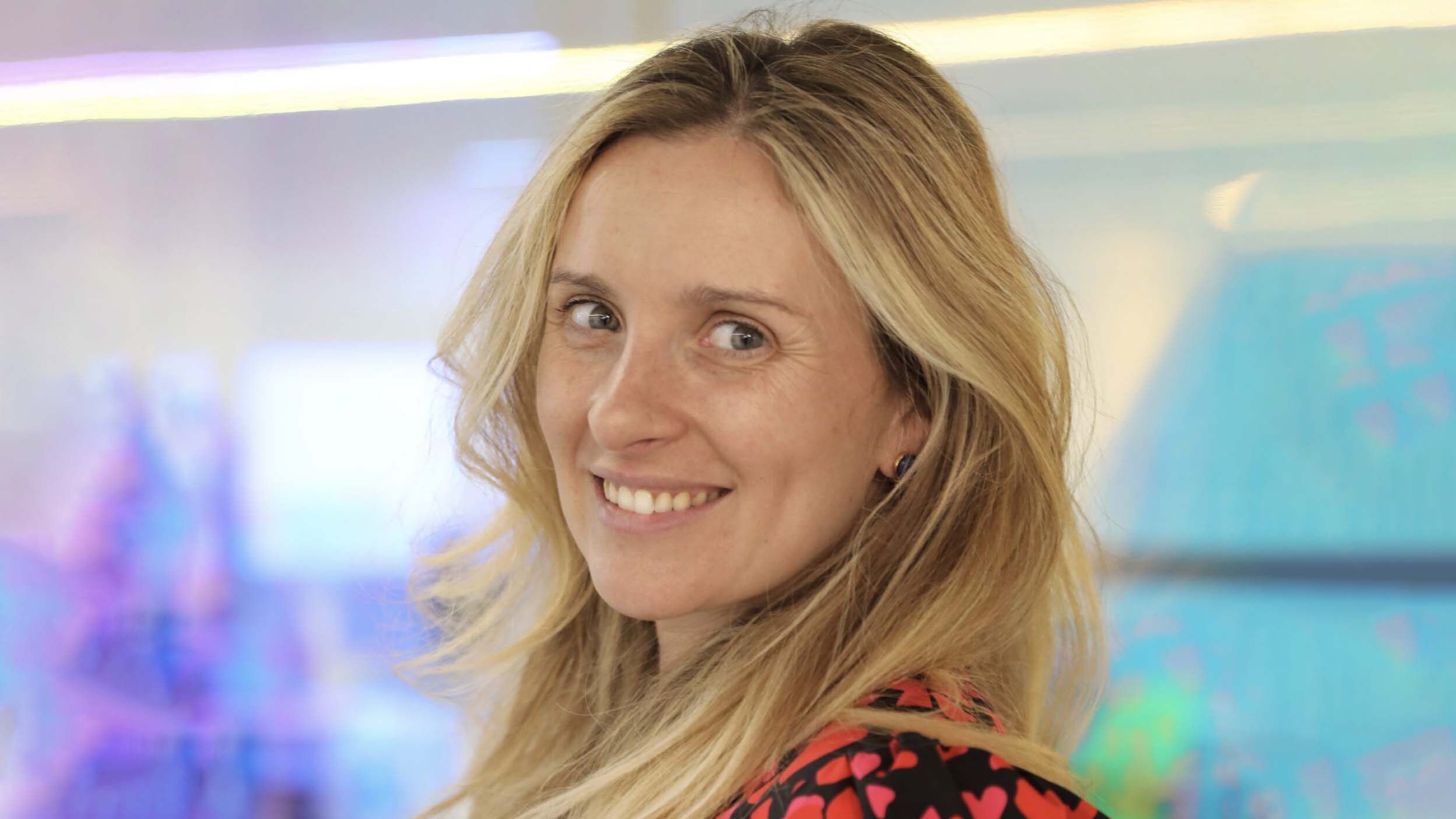Anthemis Group, founded in 2010 and headquartered in London, is “focused on re-inventing financial services for the 21st century.”
It’s an important firm within the FinTech ecosystem, but a little hard to categorize. Anthemis advises large financial services firms on digital strategy and offers a recruitment practice. It is best known as an active FinTech investor – current and past portfolio companies include Atom Bank, Betterment, Climate Corporation, Currency Cloud, Fidor Bank, Moven, QuanTemplate, Simple, and Trov. The ultimate goal, according to Anthemis, is to become one of the world’s leading diversified financial services firms.
The company, with more than 30 employees, certainly has been on the move. It recently announced the first close of Anthemis Venture Fund I, with European Investment Fund and Italian Bank UniCredit as its lead investors. Earlier this year it also announced the formation of a new €200 million investment partnership with UniCredit. Called UniCredit evo, the JV will invest in innovative early- and mid-stage financial services startups, focusing primarily on those in Europe and North America. Anthemis also has opened a U.S. office.
Tom Ryan joined Anthemis as Head of North American Operations in November 2015, coming from the venture capital arm of Archer Gray, a New York-based media investment company. He was previously with Barclays’ investment bank, where he oversaw technology, product, and marketing initiatives within the firm’s BARX electronic markets business.

Q. Tom, what is the fundraising environment like now for FinTech startups seeking seed money or a Series A? Is it different for companies that are raising a B or C round? Is there an investment chill?
A. The fundraising environment has been challenging for entrepreneurs in the last nine months or so, particularly post-seed. But I wouldn’t say that we’ve felt it in FinTech more or less than any other vertical.
One noticeable trend we’ve seen on the capital front is the dramatic growth of corporate venture. Banks and insurance companies are rightly looking to invest in new business models to participate in (and/or hedge against) innovation. Just about every top tier bank, asset manager, and insurance company has some form of venture initiative, and a good chunk of those have been formed in the last 24 months. We think it’s a net positive; we’ve always said that the transition of financial services to the digital age would take multiple decades and require capital and innovation both from within and outside of incumbents to reach its future state. So this is all part of that process.
Q. As an investor, how do you feel about participating in a round with strategic investors?
A. It depends on the institution. It’s important for strategic investors to resist the temptation to push pet projects, and instead give entrepreneurs the space to iterate and explore. Those strategic investors that are used to managing creative tension and operating outside of their corporate comfort zones are great to see in deals.
Q. How did the UniCredit evo deal come about?
A. Anthemis have two main lines of business: an advisory business and an investment business. We deliberately built a business that on one hand was investing in disruptive early-stage companies and on the other was helping large institutions reinvent themselves for the digital age. We decided to bring these strategies together in the form of what we call investment partnerships, to help institutions like UniCredit tap our experience to co-develop and execute their investment strategies. The UniCredit evo deal was our first of these investment partnerships.
UniCredit fits our criteria for the kind of partner we want to work with; innovation isn’t a novel concept for them – they’ve done a lot of interesting things over the years.
Q. Am I right in thinking this is the first time Anthemis has raised outside capital to invest?
A. We’ve raised money over the years from strategic investors who have invested in Anthemis Group, which has allowed us to invest from the balance sheet. But between the UniCredit investment partnership, a similar partnership with MMI Holdings out of South Africa, and the initial close of Anthemis Venture Fund I this week, we’ve raised $285M to date. It’s been an exciting year for us.
Q. Will you invest in truly disruptive startups or is UniCredit looking for incremental improvements in its existing business lines?
A. We’re looking at some adjacent incremental opportunities, but more importantly – and more interestingly for all involved – we are looking for the big ideas, the new, differentiating business models. So you might say a mix of near-in-the-money options and deep out-of-the-money options.
Q. Thinking broadly about everything Anthemis does, and not just in the context of the UniCredit deal, which areas of FinTech are most compelling from an investment standpoint today? Are there any emerging themes you’re following?
A. First of all, we define FinTech very broadly. We invest in risk management, payments, retail and corporate banking, capital markets and trading, wealth and asset management, data, and all related and underlying infrastructures.
Insurance is obviously an exciting investment theme – you’re talking about 300-year-old companies with high margins and low customer satisfaction. It’s no secret that the current models are flawed and that insurance as we know it will change dramatically. Interestingly, our first exit was a company in that space called Climate Corporation. They started by providing risk management data and insurance for farmers.
Q. What do you think of P2P insurance? Do you think we’ll see a full stack, de novo insurance carrier any time soon? It would take a lot of capital.
A. I don’t know that that’s necessary. We like on-demand insurance; it’s very consumer friendly. That’s why we like Trov.
Peer-to-peer insurance is really interesting, too. It presents a new asset class, potentially, for investors. Even more so than lending, insurance lends itself to peer-to-peer treatment, and there are a lot more potential data points you can use to signal risk. The whole idea of pooling risk in this way is sort of insurance going back to its roots.
So in short, it’s early days, but it’s super interesting to us.
Q. Do you have regional investment preferences right now?
A. We used to say we focused on the traditional financial centers of London, New York, Frankfurt, etc. But we are seeing that as less and less important. Obviously, proximity to the transactional action and to competition is important, but as in all other sectors, we are seeing great ideas coming from the far reaches of the world. On a more macro basis, we are focused on the UK, Europe, and North America, but, as I mentioned, the importance of the financial centers to innovation is eroding.
Q. Accessing the data they need during product development can be a challenge for FinTech startups. It can be costly and time-consuming to procure, and if you need consumer banking data or insurance underwriting data, it might not be available at all.
A. Data is becoming more widely available and perhaps less of a barrier to entry. Whether companies are plugging in to third party data providers or using bank APIs or even scraping, there seem to be options.
This raises the notion of banks as a utility. Data, in one form or another, is becoming increasingly available. Some companies like BBVA, even ahead of PSD2, are going all out and saying, “Here it is: plug into the API.”
Q. I think it’s still a problem on the insurance side, where people would like underwriting and claims data in order to come up with new insurance models.
A. That’s true for the insurance space. It goes to the question banks were asking themselves a few years ago: “Do you fight them or join them?” And they’re not really mutually exclusive choices. Insurance companies have a chance to enhance their business models and provide new distribution. Keeping a tight grip on the data is a poor defense mechanism.
Q. Where do you see the greatest potential for the blockchain? Is there a killer application?
A. The consortia that are forming around blockchain are interesting because blockchain is not really meant to be controlled by a handful of folks, or even 50. It’s meant to be governed more openly.
Blockchain has a ton of potential applications, though it can’t solve everything. Our view is that we want to see more actual development and less consortium building and over-capitalization. We want to see more execution, whether that’s in health insurance or for tracking wine portfolios or diamonds. There has been a lot of capital and attention focused on it to date. Now it’s time for more application and execution.
Q. What led Anthemis to open a New York office? You’ve been very active U.S. investors even without a U.S. presence.
A. A combination of things. The U.S. portfolio was growing, and our ecosystem was maturing, so we decided to place some boots on the ground, if only to facilitate exchanges with the entrepreneurs and the companies that we traffic with. It was an obvious evolution for the business.
Q. You’ve also recently hired Leslie Campisi as CMO, which I believe is a new position at Anthemis.
A. It made sense to us to invest in a C-level person to help make sure we are getting credit for the ideas and vision that we had. Anthemis was founded before the term ‘FinTech’ became common. Now, you can’t walk out of the Tube or subway without bumping into a FinTech founder, lecturer, or so-called expert. It’s important to us that we get credit for what we’ve been building for the last six years and to position us for what’s to come.
Q. Will she be assisting portfolio companies with their marketing efforts, or primarily focusing on building the Anthemis brand and marketing your advisory services?
A. Initially the Anthemis brand, but inevitably some work with our portfolio companies. We’ve already been doing some of that. We lean in with our portfolio companies wherever there is a need, and we like doing that. It’s the fun part of what we do.
We’ve also just announced a head of ecosystem. That person, Gavin Holland, ran the talent function for us, which still exists, but we wanted to make sure we had someone in our shop to connect the dots and match “buyers and sellers” within our ecosystem. We’ve spent a lot of time developing that ecosystem, and it’s increasingly valuable to our portfolio companies and clients.
Q. What else would you like people to know about Anthemis?
A. We are talking to U.S. institutions to find another investment partnership – another corporate venture partner that we can bring our special sauce to shape and deploy their FinTech investment strategy. We are choosing carefully because it’s an eight- or ten-year partnership and commitment. There are a lot of really smart teams out there, UniCredit being one of them.
We’ve been in this space a long time. All of us at Anthemis share this common thread, it seems, of having been disrupters elsewhere. We know what it’s like to fight the good fight. We’ve built a really strong team of like-minded folks that are passionate about shaping the future of financial services.
Q. How would you like people to contact you?
A. Tom @ anthemis dot com.
# # #




11 comments On Interview with Tom Ryan of Anthemis Group
RT @redphase: Leading #FinTech venture and advisory firm @anthemis has raised $285MM to invest YTD. A look at how they think: https://t.co…
RT @redphase: Leading #FinTech venture and advisory firm @anthemis has raised $285MM to invest YTD. A look at how they think: https://t.co…
Follow the leader @anthemis @gotomryan https://t.co/rRfhGZRj8L #FinTech #ChangeIsComing
Great, wide-ranging Q&A with my colleague @gotomryan by @redphase https://t.co/j1hRDFDLAn #fintech #vc
RT @redphase: Leading #FinTech venture and advisory firm @anthemis has raised $285MM to invest YTD. A look at how they think: https://t.co…
RT @redphase: Leading #FinTech venture and advisory firm @anthemis has raised $285MM to invest YTD. A look at how they think: https://t.co…
RT @lesliecampisi: Great, wide-ranging Q&A with my colleague @gotomryan by @redphase https://t.co/j1hRDFDLAn #fintech #vc
Interview with Tom Ryan of Anthemis Group | Blue Dun https://t.co/3W4DQmp8Xn #fintech #startup via @rshevlin
Interview with Tom Ryan of Anthemis Group https://t.co/vVIPGbWcM3
RT @redphase: Leading #FinTech venture and advisory firm @anthemis has raised $285MM to invest YTD. A look at how they think: https://t.co…
Anthemis Group continues help shape the future of financial services https://t.co/cVWlpbu1zM